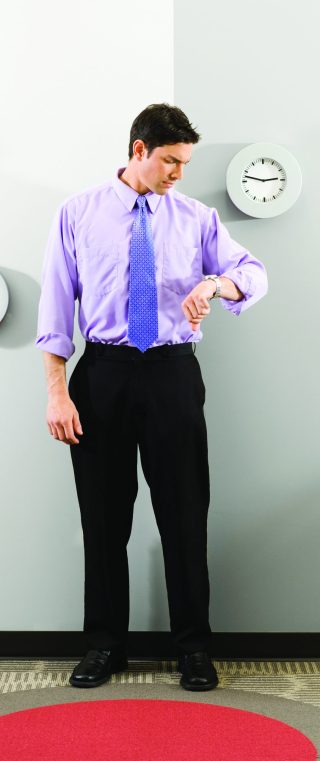FEATURE ARTICLE
Think Outside The Clock
Planners link after-school programs to classroom curriculum
By Learning Forward
April 2011
Vol. 32 No. 2
Read the remaining content with membership access. Join or log in below to continue.
Sed ut perspiciatis unde omnis iste natus error sit voluptatem accusantium doloremque laudantium, totam rem aperiam, eaque ipsa quae ab illo inventore veritatis et quasi architecto beatae vitae dicta sunt explicabo. Nemo enim ipsam voluptatem quia voluptas sit aspernatur aut odit aut fugit, sed quia consequuntur magni dolores eos qui ratione voluptatem sequi nesciunt. Neque porro quisquam est, qui dolorem ipsum quia dolor sit amet, consectetur, adipisci velit, sed quia non numquam eius modi tempora incidunt ut labore et dolore magnam aliquam quaerat voluptatem.
Key Role of Master Teachers in Out-of-School Time
A recent study sponsored by The Wallace Foundation looked at an after-school program for middle school students in New York City. The community centers, called “Beacons,” are based in public schools. “When we compared the 20 Beacons in the top attendance quartile with the 20 Beacons in the bottom quartile in terms of the percent of participants meeting a 216-hour attendance objective, we found that more Beacon directors in the top-quartile Beacons reported having a master teacher or education specialist on staff than did the directors of the bottom-quartile Beacons. Specifically, 67% of top-quartile Beacons had master teachers or education specialists on staff, while only 19% of bottom quartile Beacons did” (Russell, et al., 2010, p. ii).
Standards and Professional Development
In examining the out-of-school time sites that receive support from The Wallace Foundation, researchers explored how leaders at the sites work to improve the quality of their programs. Setting standards and offering professional development were key strategies, along with assessment systems to monitor providers, contractual mechanisms, and evaluating outcomes.
Professional development varied across the sites. Providence’s offerings didn’t initially align with standards, though they have since been adjusted. New York City invested heavily in professional development and offered onsite technical assistance for some programs. Some Boston sites used coaches to assist staff. All those interviewed by the researchers found the coaching extremely helpful.
Source: Bodilly, et al., 2010.
References
Afterschool Alliance. (2010a, May). America after 3 pm: Special report on summer: Missed opportunities, unmet demand. New York: Author & The Wallace Foundation. Available at www.wallacefoundation.org/KnowledgeCenter.
Afterschool Alliance. (2010b). 21st Century Community Learning Centers providing afterschool supports to communities nationwide. New York: Author. Available at https://afterschoolalliance.org/Research%20Factsheets%202010/21stCCLC_Factsheet_2010.pdf.
Bodilly, S.J., McCombs, J.S., Orr, N., Sherer, E., Constant, L., & Gershwin, D. (2010). Hours of opportunity, Volume 1: Lessons from five cities on building systems to improve after-school, summer school, and other out-of-school time programs. Santa Monica, CA: RAND Corporation & The Wallace Foundation. Available at www.wallacefoundation.org/KnowledgeCenter.
Duffet, A. & Johnson, J. (2004). All work and no play? Listening to what kids and parents really want from out-of-school time. New York: Public Agenda & The Wallace Foundation. Available at www.wallacefoundation.org/KnowledgeCenter.
Kotloff, L.J. & Korom-Djakovic, D. (2010). AfterZones: Creating a citywide system to support and sustain high-quality after-school programs. Philadelphia: Public/Private Ventures & The Wallace Foundation. Available at www.wallacefoundation.org/KnowledgeCenter.
McCombs, J.S., Bodilly, S.J., Orr, N., Sherer, E., Constant, L., & Gershwin, D. (2010). Hours of opportunity, Volume 3: Profiles of five cities improving after-school programs through a systems approach. Santa Monica, CA: RAND Corporation & The Wallace Foundation. Available at www.wallacefoundation.org/KnowledgeCenter.
McCombs, J.S., Orr, N., Bodilly, S.J., Naftel, S., Constant, L., Sherer, E., & Gershwin, D. (2010). Hours of opportunity, Volume 2: The power of data to improve after-school programs citywide. Santa Monica, CA: RAND Corporation & The Wallace Foundation. Available at www.wallacefoundation.org/KnowledgeCenter.
Russell, C.A., LaFleur, J., Scott, T.A., Low, M., Palmiter, A.S., Reisner, E.R. (2010, May). The Beacon Community Centers middle school initiative: Report on implementation and youth experience in the initiative’s second year. Washington, DC: Policy Studies Associates & The Wallace Foundation. Available at www.wallacefoundation.org/KnowledgeCenter.
The Wallace Foundation. (2008). A place to grow and learn: A citywide approach to building and sustaining out-of-school time learning opportunities. New York: Author. Available at www.wallacefoundation.org/KnowledgeCenter.
Learning Forward is the only professional association devoted exclusively to those who work in educator professional development. We help our members plan, implement, and measure high-quality professional learning so they can achieve success with their systems, schools, and students.
Recent Issues
NAVIGATING NEW ROLES
April 2025
Whether you’re new to your role or supporting others who are new,...
LEARNING DESIGNS
February 2025
How we learn influences what we learn. This issue shares essential...
BUILDING BRIDGES
December 2024
Students benefit when educators bridge the continuum of professional...
CURRICULUM-BASED PROFESSIONAL LEARNING
October 2024
High-quality curriculum requires skilled educators to put it into...












